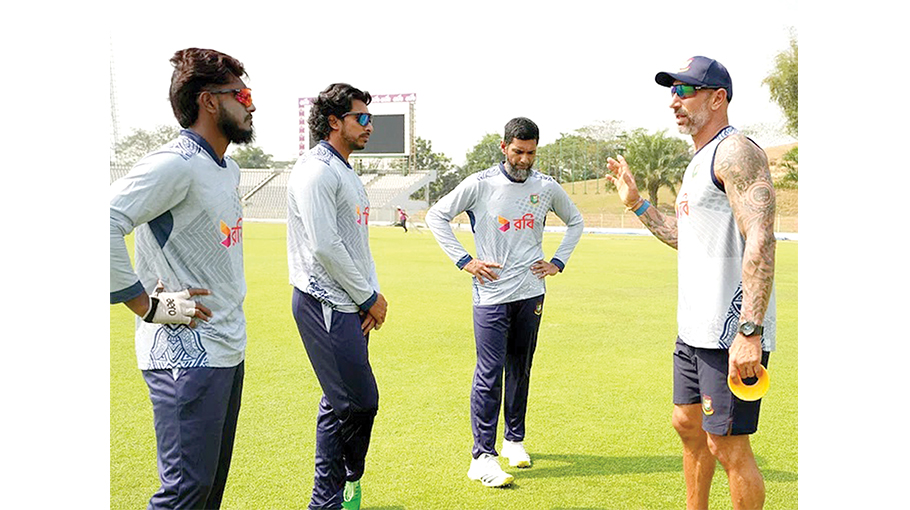WC batting debacle still haunts Bangladesh

In the high-stakes arena of the T20 World Cup, expectations were sky-high for the Bangladesh team. David Hemp, the coach, envisioned a tournament where Bangladesh would not only compete but also leave an indelible mark. The team's journey to the Super Eights was a source of pride, yet the narrow losses to South Africa and Afghanistan—teams that went on to play in the final and semi-finals, respectively—were a bitter pill to swallow. The 'what-ifs' linger, especially considering the razor-thin margins of defeat. Had Bangladesh converted those opportunities, the narrative of their World Cup campaign could have been one of historic triumph.
The pitches at the World Cup were a challenge for all, a leveller that even the most skilled batsmen grappled with. The conditions in New York and under the floodlights in Saint Vincent were particularly arduous, with seam movement and spin playing havoc. Antigua offered a respite with its batting-friendly wicket, but overall, the batsmen found themselves in a constant battle to adapt.
The persistent batting failures, despite prior knowledge of the venues and conditions, raise questions about the team's preparation and mental fortitude. The rapid decision-making required in T20 cricket can often lead to a departure from the fundamentals, and this seemed to be the case for Bangladesh. Discussions within the batting group post reaching the Super Eights suggest a recognition of the issues at hand, but the inability to translate practice into performance was evident.
The spotlight falls on Nazmul Hossain and Liton Das, whose consistent failures were a microcosm of the team's broader batting struggles. T20 cricket's unforgiving pace often means that a player's form can fluctuate wildly, and unfortunately for Bangladesh, their key batsmen could not rise to the occasion.
The match against Afghanistan was a missed opportunity that will haunt the team. With a semi-final berth on the line, the batting lacked the necessary aggression, leading to questions about the team's intent. However, Hemp insists that the desire to win was always present, and the team's approach did not waver throughout the tournament.
Looking ahead, Bangladesh faces a packed schedule with eight Test matches by the end of December. The transition from the frenetic pace of T20 to the endurance test of Test cricket will be a true test of the players' adaptability and mental strength. The preparation matches and the ongoing camp in Chittagong are crucial for the team to recalibrate and embrace the patience required for the longer format.
In conclusion, Bangladesh's World Cup journey was a tale of what could have been. The batting unit's inability to cope with challenging conditions and seize crucial moments led to a campaign that promised much but ultimately delivered little. The lessons from this experience must be heeded if Bangladesh are to evolve into a side capable of not just participating but competing and winning against the big guns on the world stage.



